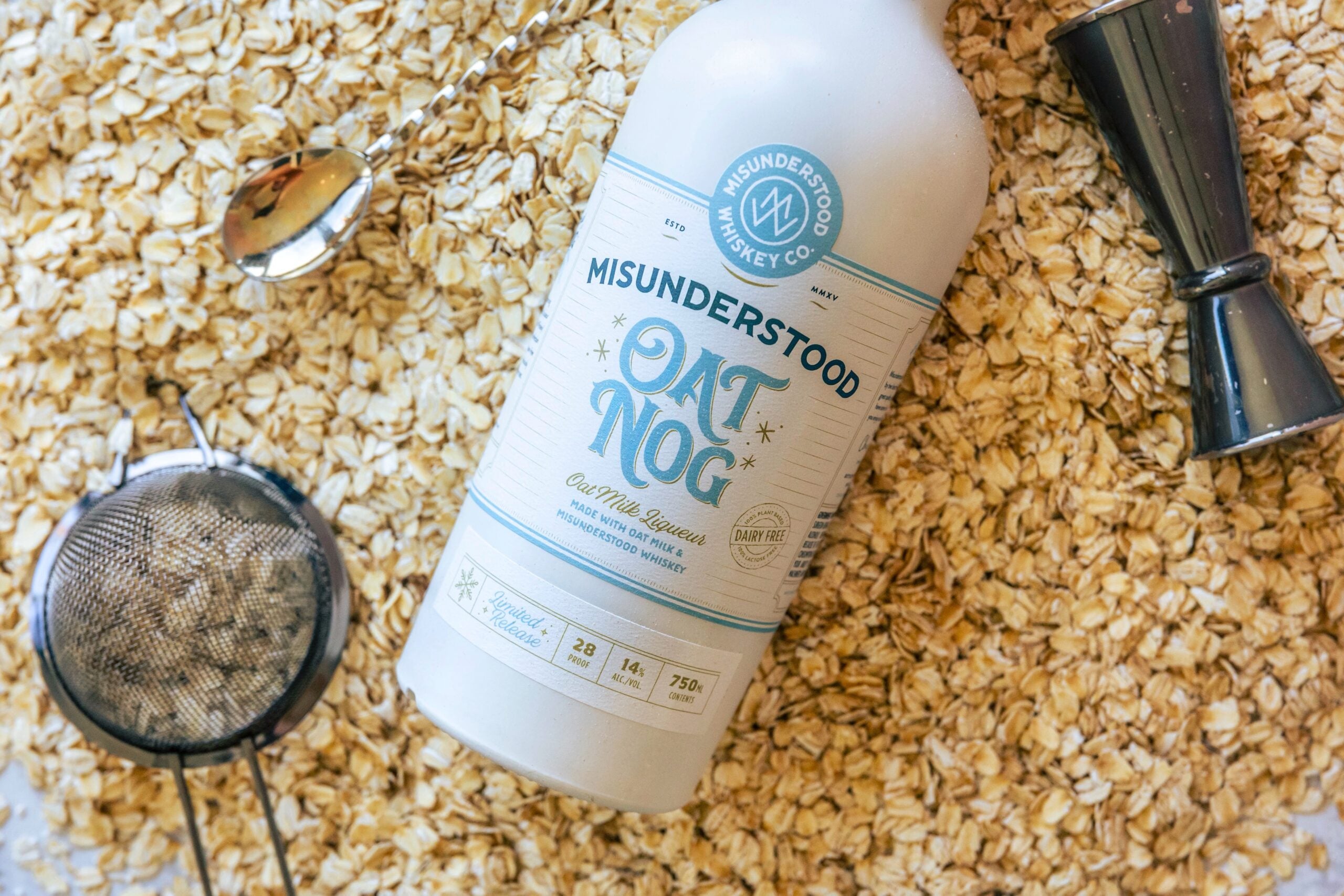Welcome to part two of our gastronome’s gift guide. Last week, we focused on edible treats, and today we’re diving into giftable potables. From beautiful boxed wine and dairy-free nog to luxurious hot cocoa and intoxicatingly good cocktails for teetotalers, these elegant elixirs will bring good cheer right on through the new year.
A cozy cuppa cocoa
Taza Chocolate Winter Warmer Sampler ($21 for 8 flavors)
An envelope cup of Swiss Miss pales (sometimes literally) in comparison to a steaming mug of chocolate made with Taza stone-ground Mexican-style chocolate discs. The Winter Warmer sampler comes with eight flavors including cinnamon, guajillo chili, coffee, and salted almond. (The Taza recipe for mixing up Oaxacan-style hot chocolate is here.) Taza has taken on chocolate’s sticky sustainability issues by paying more than the fair trade prices for its cocoa, among other measures.
Nondairy nog
Misunderstood Oat Nog ($23.99)
This plant-based and egg-free take on the classic creamy holiday concoction is made with oats and comes pre-spiked with ginger-infused Misunderstood whiskey. The booze is made by two best buds, who whipped up the first batch in their kitchen in Montclair, New Jersey, and now blend and bottle in Kentucky.
Better bitters
Fee Bros. Mole Bitters ($17.99)
Bitters bestow cocktails with subtle-yet-complex depth, and Fee Brothers has been in the bitters business for five generations. After 160 years and more than 20 flavors, the brand released its new Mole flavor in fall 2023. The bitters are made from upcycled cacao fruit juice, which previously ended up in waste streams after the seeds were sold to make chocolate. The resulting bitters have chocolate, coffee, and clove notes, along with subtle heat, making them an excellent addition to cocktails crafted with dark rum, whiskey, or tequila.
A wintry bourbon
Far North Spirits Roknar Minnesota Rye Whiskey ($64.99)
Far North Spirits, the northernmost distillery in the contiguous U.S., is one of the few outfits in the country to grow its own grains. They use heirloom corn, and their rye of choice is particularly good at withstanding harsh Minnesota winters, a hardiness that also helps it naturally outcompete weeds and resist disease. It’s also got lovely, warm vanilla and spice notes that are perfectly seasonally cozy.
Actually good boxed wine
Juliet Wines Holiday Pair ($59 for 2 bottles)
Knowing that 30% of wine’s carbon footprint comes from the production and transport of glass bottles, two Santa Barbara-based gal pals decided to swaddle their Central Coast vino in recyclable cardboard packaging. Like all their wines, the Chard and Cab in their holiday duo are sealed in inner pouches that keep the vintages fresh upward of four weeks. Juliet Wines are also certified by the California Sustainable Winegrowing Alliance.
Indulgent herbal teas
Sacred Blossom Tea Gift Box ($60 for 4 teas)
At Sacred Blossom Farm, which sits on 20 acres in western Wisconsin, herbs are grown using regenerative methods like intensive cover cropping, harvested by hand, and dried mostly with solar power. The gift box contains any four of eight teas, among them beguiling blends such as Angel (a mix that includes mint, lemon balm, elderberry, and rose) and Dream (a sleep-promoter with poppy, wild cherry bark, and anise hyssop).
An N/A negroni
St. Agrestis Phony Negroni ($59 for a 12-pack)
St. Agrestis, which specializes in Italian-style botanical spirits and pre-mixed cocktails made with herbs, spices, and roots (and without artificial colors) has nailed the bittersweet balance and floral intrigue of the negroni in an n/a simulacrum, the Phony Negroni. The booze-free bevvies, made in Greenpoint, Brooklyn, are lightly carbonated to deliver the bite that alcohol would otherwise provide.
Tour de coffee
Grounds for Change 4×12 Coffee Sampler ($15.95 for four 12-ounce bags)
It’s no great secret that the coffee trade comes with serious environmental and human costs. Not only do the Washington-state-roasted beans from Grounds for Change rate consistently high among coffee buffs, but they’re also fair-trade certified, which benefits the growers and helps preserve the surrounding ecosystems. This caffeinated sampler includes a Peruvian bean from Coffee Femenino—a project that empowers women in rural coffee-growing communities—along with beans from Ethiopia and Guatemala.

